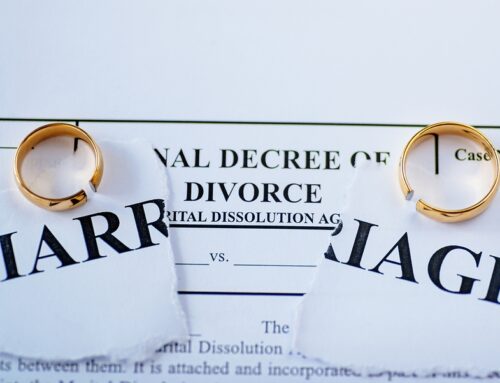You were expecting an inheritance, but you were left out of the will. Now what? Is there anything you can do if you’ve been disinherited?
Maybe. State law protects spouses from being intentionally and unknowingly disinherited and gives other would-be heirs grounds on which to contest the will.
In this blog we’ll look at what you can do if you’ve been disinherited – that is, intentionally left out of the will. (If you were unintentionally left out, you were not “disinherited” but “omitted” or “pretermitted.” Read our blog on omitted spouse / pretermitted child for what to do next.) We’ll also consider the question of whether contesting the will is worth it.
Note that laws governing wills and probate vary by state, so while many of the concepts below apply to other states in addition to South Carolina, be sure to speak with an estate planning attorney in your state.
First things first:
Are You Entitled to an Inheritance?
Only a surviving spouse is protected from being unknowingly disinherited; more about this below.
No one else – not even a child of the deceased – is entitled to an inheritance in South Carolina. While there is a cultural custom and even expectation that parents will leave something to their children after death, it is not a requirement.
What To Do When You’ve Been Disinherited
Speak with an attorney in your state with experience handling will contests about your situation. Many law firms (including ours) offer a short, free consultation, which can help you understand what your options are.
The next steps depend on your unique circumstances. You may decide to do one of the following:
– Claim Spousal Elective Share
A disinherited spouse may claim “elective share,” a portion of the decedent’s estate guaranteed under the law to a surviving spouse in separate property states like South Carolina. The surviving spouse is entitled to this share regardless of the terms of the will, unless the couple has previously signed a waiver of elective share or similar document.
Read more about Elective Share in South Carolina and how to claim it here.
– Contest the Will
In general, a testator (the person writing the will) has broad authority to decide how to dispose of his or her assets, and the probate court will follow the testator’s wishes as recorded in the will. If he or she did not leave anything to you in the will, that’s usually the end of the matter.
However, there are situations in which a will, or portions of it, can be declared invalid if challenged. South Carolina Probate Code Section 62-3-407 provides the following six grounds on which to contest a will:
- Lack of testamentary intent or capacity
- Revocation
- Mistake
- Fraud
- Duress
- Undue influence
Read more about grounds for contesting a will in our blog here where we go into depth. In addition to the six statutory grounds, South Carolina courts may also invalidate provisions of a will that violate public policy, such as those that promote unlawful behavior or are discriminatory.
To contest a will, you must be an interested party, i.e., you would stand to inherit if successful in your claim. Further, the burden of proof is on you to prove the will is not valid, under the same section cited above. The presumption of the court is that the will is valid, so it’s your responsibility to provide enough evidence to overcome that presumption.
– Sue an Individual for Interference with Inheritance
Some states recognize an “intentional interference with inheritance” (IIWI) claim. This allows a would-be heir to sue someone whom they believe intentionally prevented them from receiving an inheritance through fraud, undue influence, defamation, or similar misconduct.
South Carolina does not recognize this cause of action as of August 2025, but that could change in the future.
– Accept the Terms of the Will and Not Pursue the Matter
It can be hard to accept that you were disinherited, especially if you had a good relationship with the deceased and were expecting an inheritance. You might think it’s unfair that your parent left everything to his or her spouse instead of the kids, or that siblings received unequal amounts, or that your partner left everything to the children from a previous marriage.
But wills don’t have to be fair; they often aren’t. Unfair and legally invalid are not the same thing, however. Many times, the prudent course of action is to accept the will as is and move on.
Contesting the Will: Is It Worth It?
We get calls from people who are blindsided, and often very upset, after discovering they’ve been cut out of a relative’s will. They are prepared to jump into litigation to get what they believe is rightfully theirs.
Here’s the truth: The process of contesting a will is expensive, challenging, and time-consuming – and that’s true even in the best-case scenario, when things go your way. If they don’t, you will be out a lot of money and may have irreparably damaged relationships with relatives and friends.
Before contesting a will, you need to know if it’s worth it. Ask yourself:
-
What would you stand to gain in the best-case scenario?
Hint: It could be less than you think.
In many cases, people discover that the actual inheritance would be much less than what they had expected. This is especially true for estates of modest and average size. The Federal Reserve has an interesting article with data on expected vs. actual inheritance; see Panel B, which shows those in the bottom 50% by wealth, expected, on average, an inheritance of $29,400 but received just $9,700 – a substantial difference.
Why the discrepancy?
For one, inheritance comes from the decedent’s probate estate, after expenses are paid. A will only directs where assets subject to probate should go. (Read more about probate and which assets are subject to probate here on our blog.) From that, heirs inherit their portion after taxes, debts, probate fees, administrative costs, attorney fees, and funeral expenses have been paid out of the value of the estate. These expenses can eat up a large portion, leaving behind a much smaller estate to divvy up between heirs.
Also, just because a person is wealthy, it does not mean his or her probate estate will be large. Many people use trusts and other estate planning instruments to keep assets out of their probate estate. You may discover that the value of the probate estate is actually very small, even if the deceased was very wealthy.
You also have to consider how many people would share the inheritance. The number of other heirs you would split an inheritance with depends on how the probate court determines the assets should be distributed. It could be under the terms of the current will after certain provisions have been struck; under the terms of a previous will; or under state intestacy laws, which apply when someone dies without a will.
In one case we worked on, a man was upset that his mother’s will left everything to her husband (his stepfather) and nothing to him and his brothers. If he successfully contested the will, South Carolina’s intestacy laws would apply because there was no previous will. That means half would go to his stepfather and the other half would be divided between the four siblings. He’d stand to get just ¼ of ½ of the estate, or 12.5%.
Now, that figure doesn’t mean anything in and of itself; 12.5% of $10,000 isn’t a life-changing amount of money, but 12.5% of $10,000,000 is. It depends on the particular circumstances. But that brings us to the second question you should ask yourself.
-
Risk Vs. Reward: What’s Your Tolerance?
Let’s say you stand to inherit 12.5% of an estate worth $10 million after all taxes, debts, and fees have been paid, which comes out to $1,250,000. It will take about $50,000 in legal fees to successfully contest the will. In this case, yes; if you have a strong case, risking $50,000 for the potential to gain $1,250,000 is worth it.
What about spending $10,000 for the potential to gain $17,000? A woman called our office upset that her mother had cut her out of the will and left everything to just one of the three sisters. If she prevailed in contesting the will, she’d split her mother’s roughly $50,000 estate with her two sisters (because there was no surviving spouse), which comes out to around $17,000. Is risking $10,000+ in fees for a shot at <$17,000 worth it?
In addition to risking her money, this woman would risk fracturing her relationships with her sisters, which brings us to the third question to ask yourself.
-
Can You Accept the Non-Monetary Fallout?
Be prepared for the possible ramifications that have nothing to do with money. Contesting a will and battling over a deceased relative’s estate often leads to the destruction of previously solid relationships and family bonds. We see it every day, unfortunately.
Think about how much those relationships are worth to you before moving ahead with contesting the will.
Have You Been Disinherited? Do You Need Help with Estate Planning? Call Gem
The above is not intended to dissuade you from taking legal action, but to help you see the situation from a legal point of view. Maybe you believe the potential financial reward is worth the risk. Or maybe you’re not motivated by money but by the desire to right a wrong and ensure your loved one’s true wishes are carried out, especially if you believe there’s been fraud, duress, or undue influence. Whatever your situation is, we urge you to consider the questions above if you’re considering contesting the will.
Speaking with an estate planning / probate attorney in your state is a good first step. An attorney can help you claim elective share (if you’re a disinherited spouse) or help you determine whether taking legal action like formally contesting a will is likely to succeed.
Call estate planning attorney Gem McDowell for help probate, creating a will, contesting a will, or other estate planning matter in South Carolina. Gem and his team at the Gem McDowell Law Group help individuals and families across South Carolina create personalized wills and comprehensive estate plans for peace of mind, as well as handle issues of probate and inheritance. Call Gem and his team at their Myrtle Beach or Mt. Pleasant, SC offices today at 843-284-1021 to schedule a free consultation.





